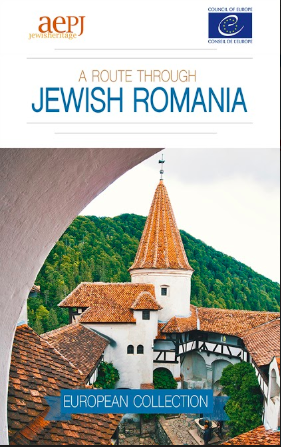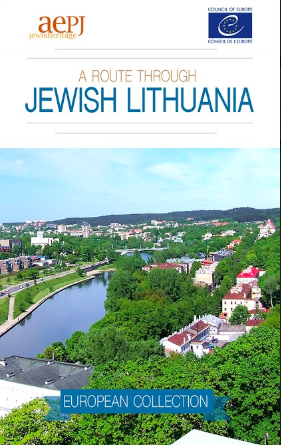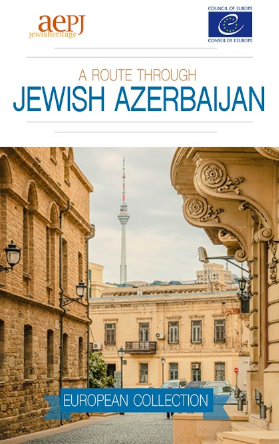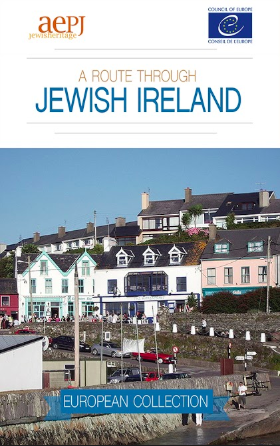Maoz Vegetarian is a fast service restaurant serving authentic falafel and freshly made vegetarian food.
When it comes to falafel, we are world experts. For over 20 years, we have been continuously working on perfecting our product to offer the best tasting nutritious meals to our customers worldwide. And we keep on getting better. With more than 15 signature salads and sauces made with the finest ingredients from local farmers and purveyors, we are always on the lookout for the best quality ingredients available.
Why do we call it a vegolution? Well, we’re the perfect combination of nutritious and delicious. But don’t take our word for it. Once you’ve tasted our food, you’ll get it. And you’re always welcome to come back for more…

Seret International, an Israeli film and television festival has been around since 2015. It will premiere in four locations across the Netherlands. Taking on a comparatively larger pool of talent than their first two years, the film festival will be showcasing internationally acclaimed Israeli filmmakers, including both feature films and documentaries. Seret International will be screening for 5 days at the Amstelveen and Rialto cinemas in Amsterdam, the Lumière in Maastricht and the Louis Hartlooper Complex in Utrecht. The event has flourished since its inception two years ago. If you’re travelling in Amsterdam during the month of November, be sure to check for the festival’s details and stay up to date!
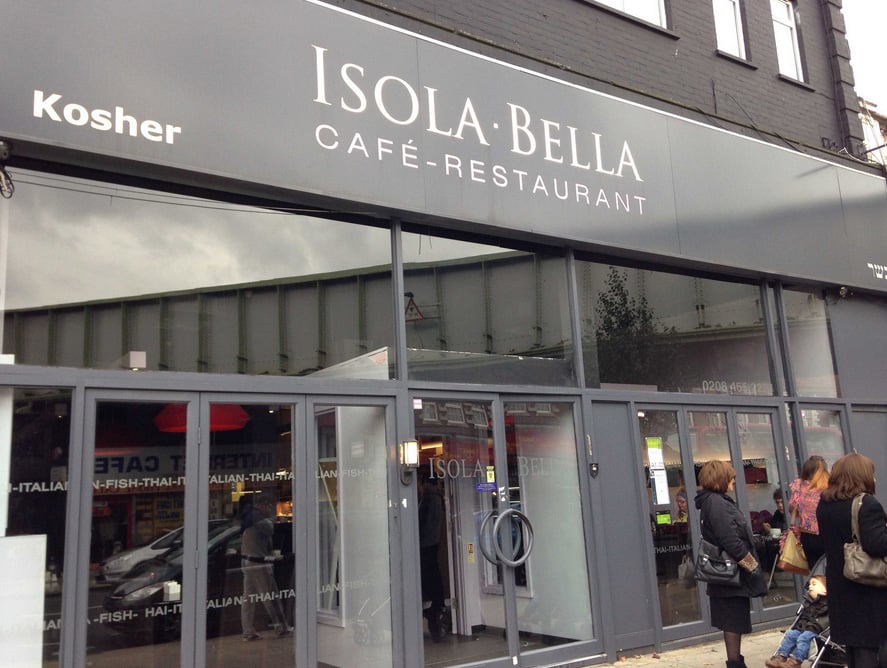
Isola Bella prides itself on creating an honest and fresh menu centered on authentic Thai cuisine, inspired Italian dishes and a few traditional treats influenced by the Middle East. Our atmosphere is at once inviting and spirited yet subtle enough to appreciate our flavorsome dishes which are sure to arouse your culinary senses. We regularly anticipate fully booked seating so therefore we recommend reserving your table in advance to avoid disappointment.
Diners looking for a unique kosher restaurant experience can find it at Isola Bella. Located in the heart of Golders Green, London (about 1.2 miles from Hampstead Heath), the restaurant and cafe serve a fusion of authentic Thai dishes with influences of Italian and Middle Eastern cuisines. Isola Bella has both breakfast and lunch menus available. In addition, guests can also choose from one of four set menus, which come with a starter, main course, and dessert. Tables often fill up, and Isola Bella recommends that patrons book a reservation to reserve a place in advance.
When thinking of kosher cuisine, Thai food wouldn’t normally come to mind. Not to mention, with a name like Isola Bella, diners would expect a purely Italian eatery. Perhaps that’s what makes this restaurant such a treat. Isola Bella serves a unique blend of kosher Thai-focused foods with influences of Italian and Middle Eastern cuisines. The variety of flavors excite the senses. Menu choices range from Caprese salads and pizzas, to shakshuka and smoked salmon, along with Thai egg rolls and pad thai. The restaurant also features an in-house bakery. Both locations serve kosher food under the supervision of the London Beth Din.
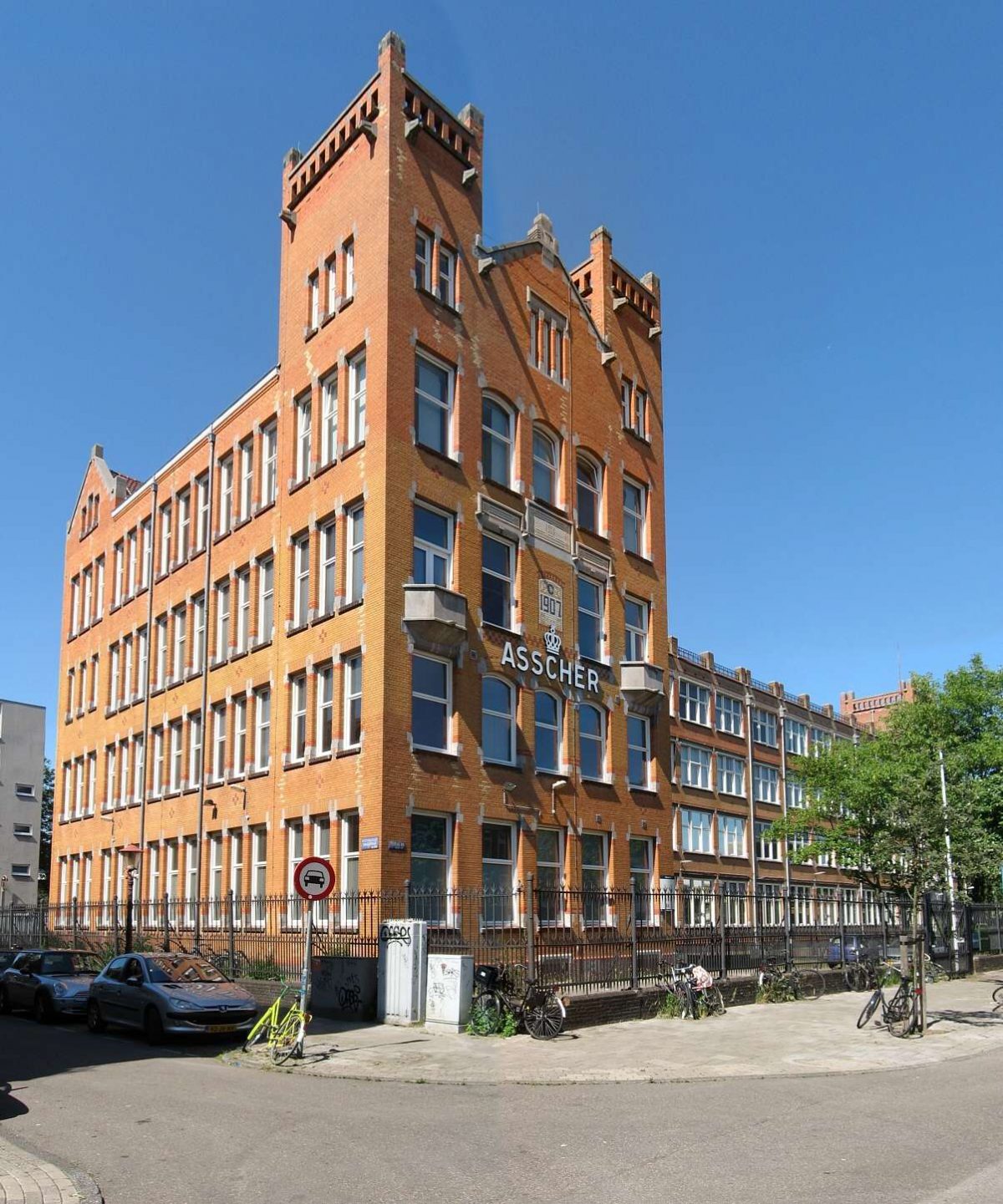
The Diamond Company House of Culture (Cultuurhuis Diamantslijperij) was built by the Asscher Family in 1907. It was first used as a factory for The Royal Asscher Diamond Company, Koninklijke Asscher Diamant Maatschappij in Dutch, which was established in 1854. Since then, it has represented the long-standing involvement of Jews in the Amsterdam diamond industry. Queen Juliana of the Netherlands, granted them the ‘Royal’ name they bestow today in 1980, for their long standing hard work and widespread influence.
Although the diamonds are no longer cut in this building, the Asscher family continues to hold office here, along with various other creative companies. While the Royal Asscher does not offer guided tours, passersby can enjoy the splendor of this beautiful building.
During World War II, the Nazis confiscated the diamonds and deported the Asscher family along with 500 of their polishers to concentration camps. Only ten Asscher members and fifteen other workers survived. After the war, the capital of diamond polishing moved from Amsterdam to Antwerp, and the Asschers were forced to rebuild their empire.
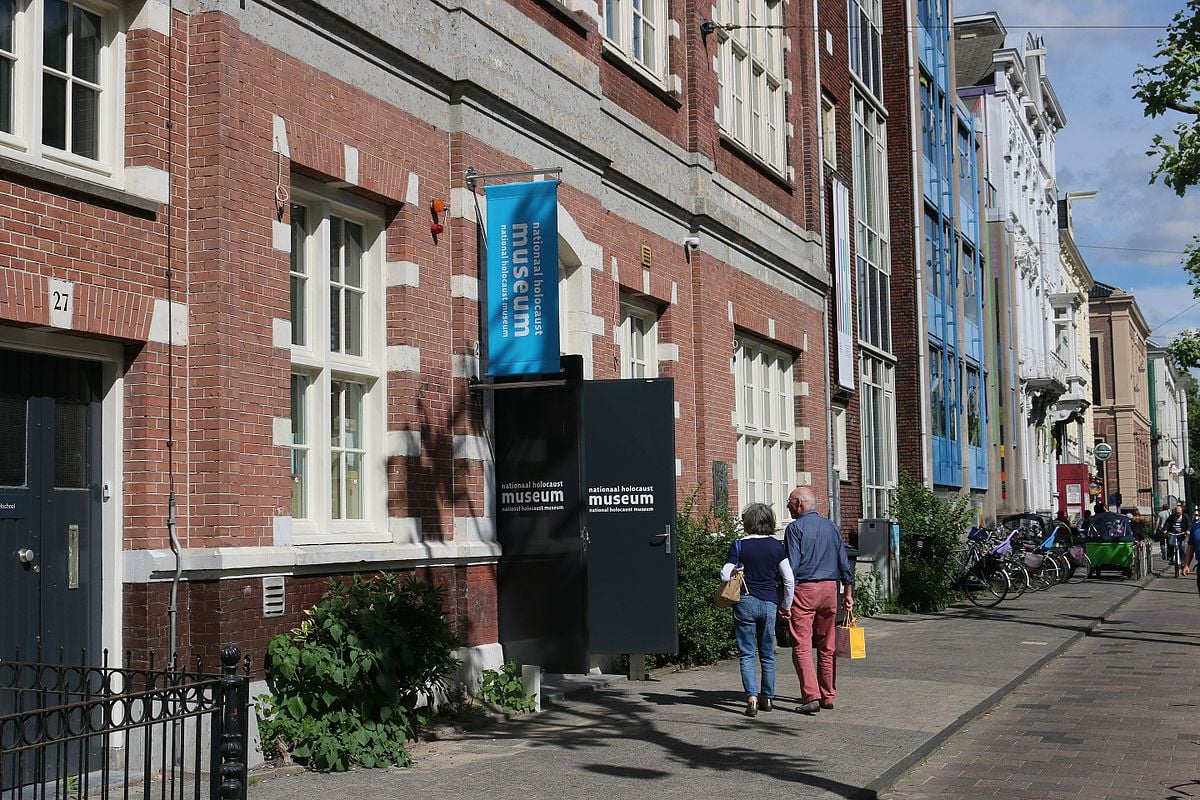
The National Holocaust Museum is located across the street from the Hollandsche Schouwburg. It too serves as a testament to the Dutch Jews who suffered during WWII. The museum contains in-depth exhibitions which explain the events of the holocaust to an international audience. The museum routinely hosts the well known Dutch painter, producer and actor, Jeroen Krabbé, and his exhibition titled, ‘The Demise of Abraham Reiss’ (De ondergang van Abraham Reiss). The museum is the first of its kind in the Netherlands, showcasing life before, during, and after Germany’s occupation, and giving a full overview of Jewish life during these years. The National Holocaust Museum has plans for expansion and growth in the coming years, so be sure to check out this important site.
The museum is housed in a former teacher training college on Plantage Middenlaan, next door to the “Crèche” where Jewish children were held before being deported to Westerbork. About 600 children were saved with the help from different Resistance groups, as well as teachers from the training school. These unimaginable stories are illustrated in the museum.
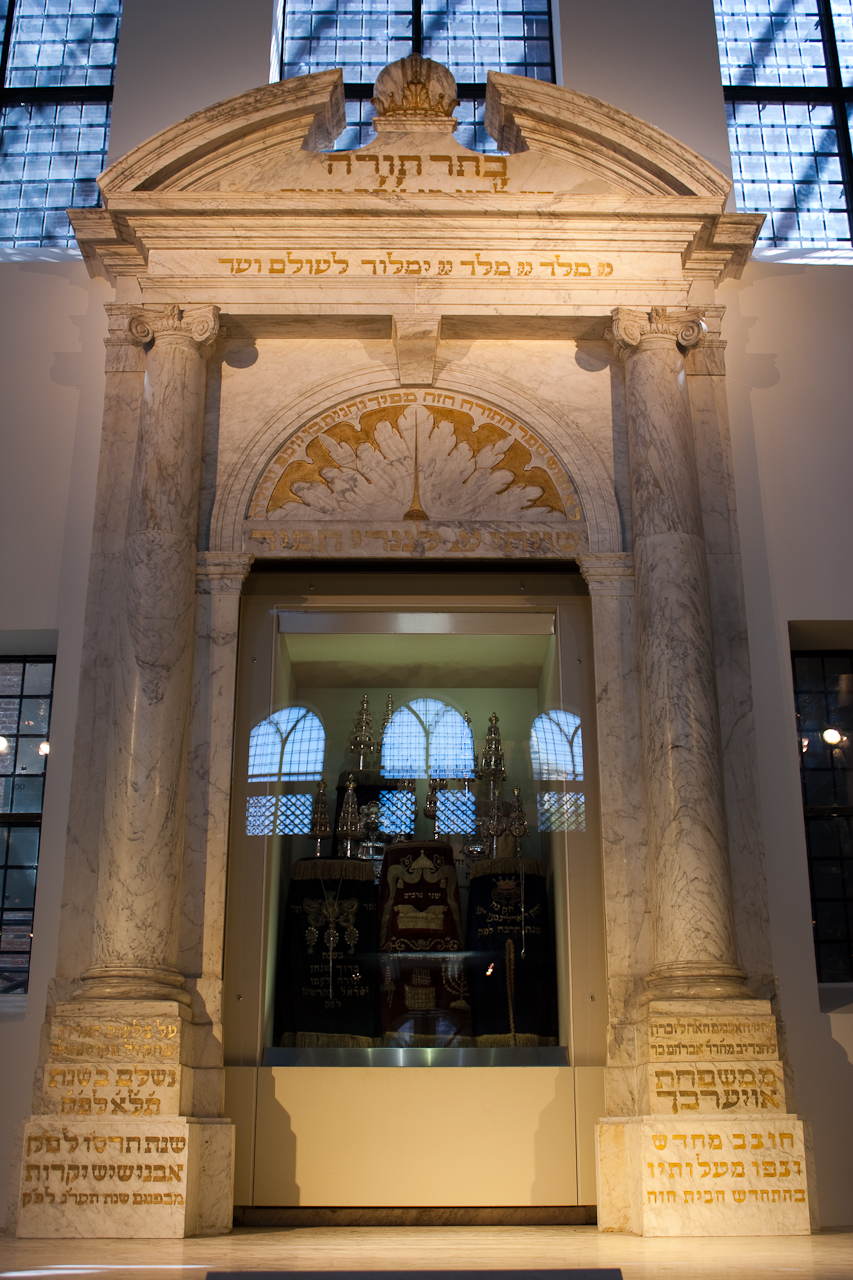
The Jewish Historical Museum (Joods Historisch Museum in Dutch) was established in 1932. The museum is devoted to Jewish history, culture and religion, in the Netherlands and abroad. Located in the Jewish Quarter, the museum prides itself in being the only one in the country of its kind. The museum is home to a vast array of historical artifacts including everyday objects and art, which provide a valuable insight into the different aspects of Judaism in the Netherlands. The JHM Children’s Museum contains relevant Jewish artifacts which are displayed through interactive presentations. The museum hosts temporary and permanent exhibitions which depict cultural Jewish history and showcases about the role of Judaism and the influence that Jewish and Dutch culture had on one another.
The Joods Historisch Museum (Jewish Historical Museum) is a museum in Amsterdam dedicated to Jewish history, culture and religion, in the Netherlands and worldwide. It is the only museum in the Netherlands dedicated to Jewish history. A seven-year renovation of the museum was recently completed (2007).The museum was recognized in 1989 when it received the Council of Europe Museum Prize, awarded for a combination of the presentation of the collection and the outward appearance of the buildings.The Joods Historisch Museum opened its doors on February 24, 1932 and was initially housed at the Waag (Weighing House) on Nieuwmarkt square. Following the Nazi occupation of the Netherlands in World War II, the museum was forced to close and much of the collection was lost. The museum reopened its doors in 1955. In 1987, it moved to a new location, occupying four former synagogues on Jonas Daniël Meijerplein square, across the road from the Snoge or Portuguese Synagogue (for which joint tickets are sold).
The museum’s collection includes some 11,000 art objects, ceremonial objects and historical objects, only some five percent of which is on display at any one time. It has two permanent exhibitions as well as regularly changing temporary exhibitions. The exhibition on the ground floor focuses on Jewish traditions and customs. The presentation is inspired by the former interior of the synagogue. Ceremonial objects from the museum collection are shown in locations where they used to be placed in the synagogue. This gives visitors a sense of the surroundings in which they find themselves and enables them to taste the original synagogue atmosphere.The galleries of the Great Synagogue feature a new presentation on the history of the Jews of the Netherlands from 1600 to 1890. The central theme is what it meant to be a Jew in the Netherlands in this period. Stories about how Jews arrived in the Netherlands, the extent to which they managed to integrate, the cultural interchange with non-Jewish countrymen and the preservation of their identity resonate today in contemporary situations and debates.





